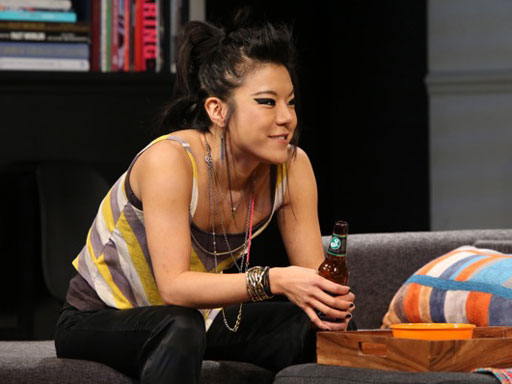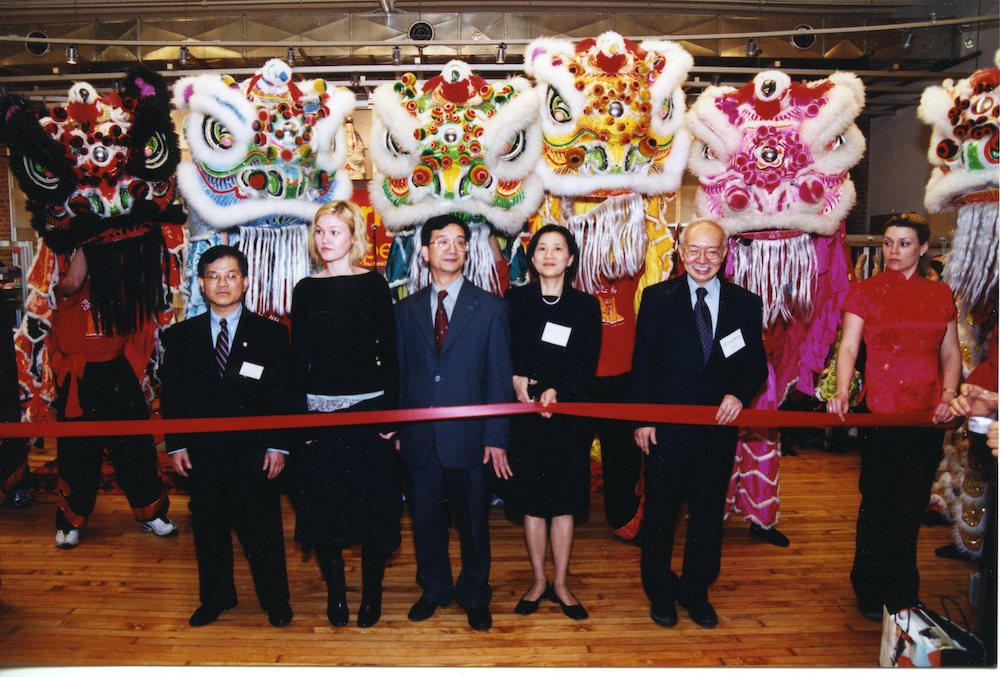Tenants of rent-regulated apartments in Chinatown fought back and won a settlement with their landlord, who now must provide safe and decent living condition and stop harassing them.
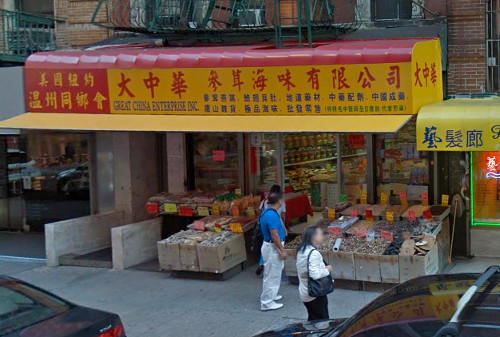
May 6, 2016
When workmen left Betty Eng’s apartment at 90 Elizabeth Street in Chinatown one steamy day in July last year, they left her toilet in the middle of the living room of her apartment.
Earlier in the day, the workmen were sent by the landlord to fix the leaks in the pipes in Eng’s kitchen and bathroom. She had been complaining about the leaks for about a month, ever since the new landlord took over the building and started construction work.
The workmen pulled out the leaking pipes in Eng’s kitchen and removed her toilet. They told her they’d come back to finish the work. But they never did – not until April 1, thanks to a lawsuit settlement that Eng and other tenants of 90 Elizabeth Street won from their landlord.
“I had a toilet in my living room for eight months. It was terrible and ridiculous,” Eng said.
Eng is not the only one living in rent-regulated apartments in Chinatown whose life was turned into a living hell by landlords who resort to renovation aggression, employing construction works as a means to drive away tenants in rent-regulated apartments.
“A rent-regulated apartment in an old building in Chinatown may generate $500 to $600 income per month for the landlord. But after it is vacated, the apartment loses its rent-regulated status. The landlord then can rent it out for $2,500 to $3,000.”
“We’ve seen that a lot these days – landlords using construction as a harassment tool to try to get people out of their apartments,” said Anita Wu, an attorney with Manhattan Legal Services (MLS). She was also one of the advocates who helped the tenants at 90 Elizabeth Street file the lawsuit against its landlord, Asian Inc., owned by James Fong.
Landlords want tenants to move out of their rent-regulated apartments for one simple reason – to replace them with wealthier tenants who would be paying 500 percent more than the current rent.
A rent-regulated apartment in an old building in Chinatown may generate $500 to $600 income per month for the landlord. But after it is vacated, the apartment is “deregulated”, meaning it loses its rent-regulated status. The landlord then can rent it out for $2,500 to $3,000.
To drive out tenants, landlords have resorted to construction work to literally smoke the tenants out of rent-stabilized units. The repairs and renovation not only pose inconvenience and health hazard to tenants; they also lead to the cutting off of basic services such as heat and water supplies. Unable to bear with these problems, some tenants simply move out.
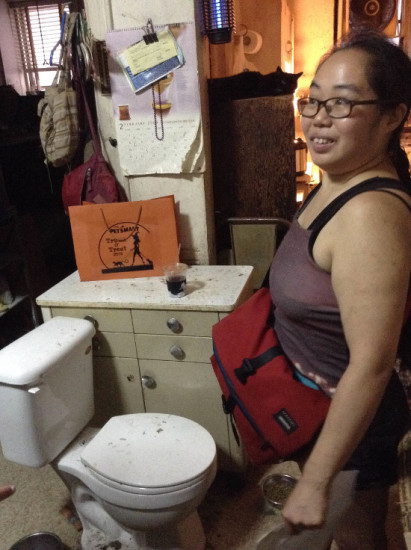
“It started about five years ago when the market was really going up,” Donna Chiu, Director of Housing and Community Services of Asian Americans for Equality (AAFE), said. “Most of the buildings AFFE is organizing don’t have cooking gas or some type of essential services like hot water or heat. How was it possible that a lot of people in different buildings don’t have cooking gas? It turns out the tactics the owners are using are the same.”
AAFE helped tenants in several Chinatown buildings including 90 Elizabeth Street to oppose tenant harassment and protest against substandard living conditions.
“Every time a landlord buys a new building, he or she starts harassing the tenants. Before, it was just individual evictions. In recent years, it became building-wide; landlords start construction when there is a vacant unit,” Councilmember Margaret Chin, who represents Chinatown in New York City Council, said.
That’s exactly what happened to Eng and her neighbors at 90 Elizabeth Street. In recent years, New York City’s Tenant Harassment Prevention Task Force found the dilapidated building guilty of various Housing Prevention and Development (HPD) violations.
But the residents’ real nightmare began when the building was sold to the current landlord, Asian Inc.
The new landlord immediately started renovation in some of the vacant units. The construction not only left the entire building covered in dust and littered with debris, but it also made the ceiling crack and the pipes leak in several apartments that were occupied.
“It looked really bad. Some apartments looked like they’re not even livable,” Wu of MLS said, describing the state of the apartments when she first got involved in the case.
The settlement for 90 Elizabeth Street was reached on December 18, three months after the tenants filed the lawsuit. It required the landlord, Fong, to address the complaints of the tenants, like the holes in the ceiling and the leaking pipes by June 30. The landlord was also obligated to notify the tenants in their native languages whenever a repair is scheduled.
“This is a big victory for the tenants,” Wu said.
The landlord did not reply to the phone calls of this reporter. But Wu said that so far, “the landlord is pretty responsive.”
“’Chinese often don’t want to start a fight, even though it is for their own rights,’ said Wai Yee Poon of the Chinatown Tenants Union (CTU) who helped organize tenants in 90 Elizabeth Street.”
But filing lawsuits after the damage is done is not enough to protect the tenants from being harassed in the first place. Tenants and advocates expressed concern that the city needs to update its procedures so that it can prevent the rising wave of construction harassment.
The city’s Department of Building approves landlords’ application for permits for renovation without inspection. This procedure is turning out to be a major loophole; landlords take advantage of this laxity by lying in their applications.
Take 110 Madison Street in Chinatown, for example. The building has been undergoing major renovation for a year now. The tenants have been living without cooking gas since December last year. The landlord told the DOB in its application for a construction permit that the building was “unoccupied”. This was the same case with 90 Elizabeth Street.
At the City Council, there has been a few bills aimed at making the city protect the tenants more proactively. The bills would, among other things, require DOB to inspect the building before issuing a permit in cases where more than 10 percent of the units are occupied, or in cases where the landlords have been found guilty of tenant harassment.
The bills will also require landlords to submit their construction plan to the community board and the local elected official’s office.
In an April 18 public hearing by the Council’s Committee on Housing and Buildings, Timothy Hogan, Deputy Commissioner of Enforcement of DOB, however admitted that the city could not go after landlords unless tenants file complaints.
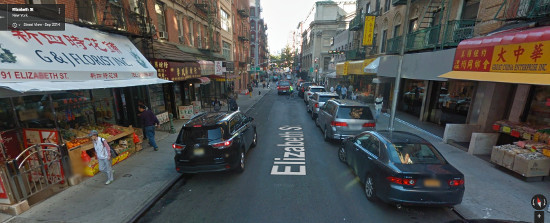
But waiting for complaints from tenants before acting does not seem to work in Chinatown. “Chinese often don’t want to start a fight, even though it is for their own rights,” said Wai Yee Poon of the Chinatown Tenants Union (CTU) who helped organize tenants in 90 Elizabeth Street.
“There are some buildings where we can literally see the violations. But when we knocked on the door of the tenants, they insisted everything was fine. And then, they tried to fix the problems quietly by themselves.”
In the case of 90 Elizabeth Street, only four apartments are covered by the settlement. This is because the tenants of these four units were the only ones who filed the lawsuit. The tenants in the rest a dozen or so apartments, who are mainly Chinese, decided to keep their silence and did not join the lawsuit.
Eng knows from experience how hard it is to organize the tenants.
When the construction in her building started, Eng found it was difficult for her to breath while climbing the stairs due to construction dusts. One day, she had to stop and cough vehemently on the stairway. Her neighbor, David Tang, came to help her.
“I know David has the same problem, his mother has the same problem and another neighbor has the same problem. And I said we have to do something about it,” said Eng.
That was how the lawsuit got started. But most neighbors would rather not confront the landlord. “I still get doors slammed in my face,” said Eng. “We Chinese don’t like to fight against the authorities, in this case, the landlord.”
But Eng was undaunted. The settlement did not end her problem regarding her apartment. The lease on Eng’s rent-regulated apartment where she was born in 1971 and has been living in since was under her parents’ name.
Her father passed away years ago while her mother, who has been living in a nursing home since 2014, passed away two weeks ago. Her mother had passed down the apartment to her in October, which is allowed by law.
But the landlord is claiming that the primary holder of the rent is not Eng but her mother, and has sued her mother for not using the apartment as her primary residence. The landlord is seeking to evict Eng and her family, and to deny her and her brother succession rights to the apartment. The case is pending in court.
“Where can I go?,” Eng asked. “I was born and raised in this apartment. I have a history here.”

